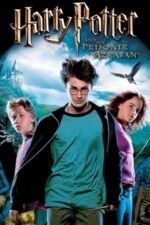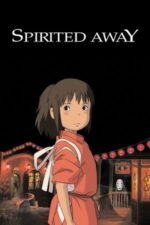Beyond Abracadabra: Exploring Magic on Screen
Okay, let’s talk about magic. Not the pulling-a-rabbit-out-of-a-hat kind (though that has its charm!), but the idea of magic in film – that sense of wonder, possibility, and sometimes, unsettling mystery. It's a surprisingly rich vein to mine when you think about it; magic isn’t just sparkly wands and incantations. It’s about belief, transformation, and confronting the unknown.
I was thinking about this recently while rewatching Pan’s Labyrinth, which, let's be honest, is practically a masterclass in using magical realism to explore darker themes. But it got me wondering: how do different films approach that core concept of magic? And what does each tell us about the human condition?
Take Aria the Benedizione for example. It’s not your typical fantasy film; it's set in a futuristic, Venetian-inspired city and the "magic" isn’t overt. Instead, it resides in the traditions, the gondolas, the sense of history layered upon a modern world. The mystery surrounding Aika’s reluctance to inherit her family legacy feels almost… enchanted. It suggests that sometimes, the most powerful magic lies not in grand displays but in unspoken connections and inherited burdens. It's like those old fairy tales where the enchantment is subtle – a sleeping curse, a talking animal – and its power comes from its unexpectedness.
Then you have something completely different, like Looking for Magical Doremi. This one leans into a more whimsical kind of magic, using a mysterious gemstone to connect three women across time and distance. It's less about fantastical creatures and more about the transformative power of friendship and shared experience – a kind of emotional alchemy. It reminds me a little bit of Studio Ghibli films; that ability to find wonder in everyday life is something they do so brilliantly.
And let’s not forget the sheer, playful joy of Meowjick. That short film perfectly captures the idea that magic can be chaotic and unpredictable – sometimes bringing misfortune alongside delight. It's a reminder that even when things go wrong (and they often do!), there's beauty in resilience and finding connection with others. It’s pure, unadulterated fun!
Milarepa, on the other hand, uses its Sardinian setting to create a sense of ancient magic – a spiritual journey rooted in cultural heritage and personal redemption. It’s less about spells and more about uncovering inner strength and finding peace amidst turmoil. And Scarlett's Colorful Friends dives into something truly unsettling: what happens when the pursuit of magical power is twisted by scientific ambition? The implications are chilling, forcing us to confront the ethical boundaries of experimentation.
Finally, Stupid Games takes a completely different tack – using the idea of magic as a metaphor for unseen forces and vulnerabilities in our increasingly connected world. It’s a clever way to explore anxieties about technology and trust.
Ultimately, "magic" on screen isn't just about fantastical elements; it's about exploring what makes life feel extraordinary, even when reality is mundane or harsh. It's about the power of belief, connection, and the enduring human desire for something more. So next time you’re looking for a film to watch, consider not just the plot, but how it engages with this fascinating concept – you might be surprised by what you discover!






































